Our Science
The research being undertaken by ENSA aims to achieve a transformation in how crop plants acquire nutrients, such as nitrogen and phosphorus.
ENSA's Science
The research being undertaken by the ENSA team aims to transform how crop plants acquire nutrients, such as nitrogen and phosphorus, achieving a radical shift away from the application of inorganic fertilisers to harness naturally occurring plant processes.
To achieve this, ENSA is focused on four key areas of scientific development: Nitrogen-fixation and bacterial infection, symbiosis signalling, mycorrhizal symbiosis, and nodulation.
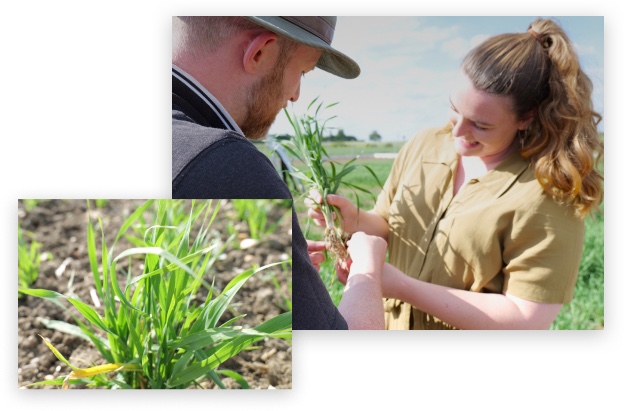
Nitrogen Fixation and Bacterial Infection
Most plants rely on natural environmental processes, that replenish bioavailable nitrogen in the soil, for nutrition and growth. Plants, such as legumes, have evolved symbiotic interactions with nitrogen-fixing soil bacteria known as rhizobia. These interactions have the potential to fuel nitrogen metabolism in plants, by fixing gaseous nitrogen from the atmosphere, while consuming carbon supplied by the plants.
The ENSA team has focused its research in this area on transferring the beneficial association between nitrogen-fixing bacteria and legumes, to cereals and other crop plants. Engineering biological nitrogen fixation into species that currently do not have this ability, has the potential to make an important impact on the metabolism of these plant species and may sustainably enhance production for small-holder farmers.
Coordination of genetic and morphological responses by plants across time and space, is essential for intracellular bacterial infection, efficient nitrogen-fixation and metabolite exchange. ENSA is analysing the genetic mechanisms that allow intracellular bacterial infection of legume cells, to guide the engineering of this process in cereals, including the components specific to nitrogen-fixing symbiosis.
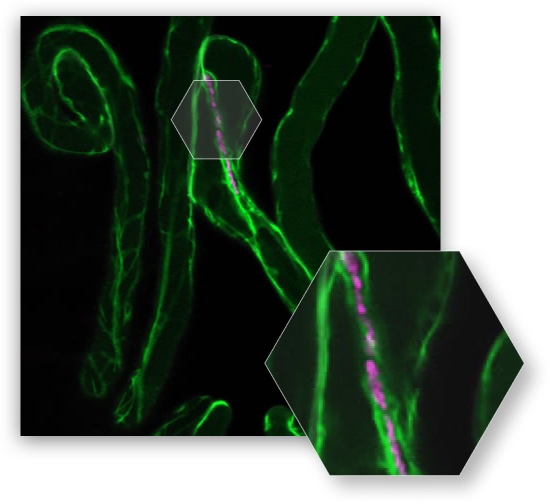
Experts in this area
Nikolaj Abel
Postdoctoral researcher
Aarhus University
Profile
Stig Uggerhøj Andersen
Professor
Aarhus University
Profile
Morgane Batzenschlager
Postdoctoral researcher
University of Freiburg
Profile
Ronan Broad
Postdoctoral researcher
La Trobe University
Profile
Pierre-Marc Delaux
Project leader
LRSV-CNRS (University of Toulouse, France)
Profile
Federico Fornaguera
Tissue Culture Technician
Wageningen University & Research
Profile
Manuel Frank
Postdoctoral researcher
Aarhus University
Profile
Paul Fraser
Professor of Biochemistry
Royal Holloway University of London
Profile
Jinpeng Gao
Postdoctoral Research Associate
University of Cambridge
Profile
Euan James
Research Leader
The James Hutton Institute
Profile
Rourou Ji
Graduate Research Assistant
University of Illinois Urbana-Champaign
Profile
Joshua Kaste
Postdoctoral Research Associate
University of Illinois
Profile
Beatrice Lace
Postdoctoral researcher
University of Freiburg
Profile
Stephen Long
Ikenberry Chair of Crops Sciences and of Plant Biology
University of Illinois
Profile
Megan Matthews
Assistant Professor
University of Illinois
Profile
Nils Nebel
PhD student
University of Freiburg
Profile
Giles Oldroyd
Professor of Crop Sciences
University of Cambridge
Profile
Thomas Ott
Professor
University of Freiburg
Profile
Laura Perez-Fons
Research officer
Royal Holloway University of London
Profile
Phillip Poole
Project leader
University of Oxford
Profile
Jule Salfeld
PhD student
University of Freiburg
Profile
Casandra Schenk
Postdoctoral researcher
University of Freiburg
Profile
Sebastian Schornack
Principal Research Associate
University of Cambridge, Sainsbury Laboratory (SLCU)
Profile
Jawahar Singh
Postdoctoral researcher
University of Cambridge
Profile
Magdalini Tsitsikli
Postdoctoral researcher
Albert Ludwigs University of Freiburg
Profile
Tatiana Vernié
Post-doctural researcher
University of Toulouse
Profile
Jesper Wulff
Laboratory Technician
Aarhus University
Profile
Guofeng Zhang
PhD student
University of Freiburg
Profile
Ji Zhou
Head of Data Sciences Department
NIAB
Profile
Symbiosis Signalling
ENSA’s research into symbiotic signalling has focused on characterising the function of the components of the symbiosis signalling pathway in maize, barley and legumes. Key to the establishment of the symbiosis association is the specific perception of signalling molecules. Receptors activate the signalling pathway through recognition of chitooligosaccharides (COs) and lipochitooligosaccharides (LCOs). Research in ENSA identified motifs in LysM receptors that are important for distinct recognition of CO versus LCO enabling symbiosis signalling.
The ENSA team has made significant advances in its understanding of the signalling pathways in cereals through detailed genetic dissection in maize and barley. ENSA has also demonstrated how the symbiosis signalling pathway is necessary to drive diverse bacterial communities and is essential for the prevalence of bacteria known to be beneficial.
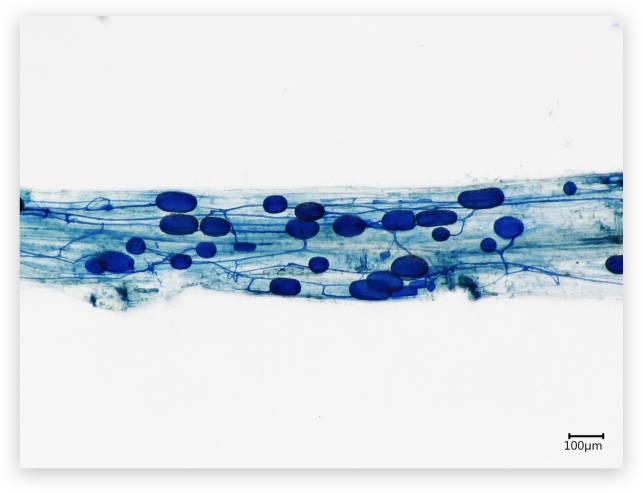
Experts in this area
Kasper Røjkjær Andersen
Professor
Aarhus University
Profile
Stig Uggerhøj Andersen
Professor
Aarhus University
Profile
Federico Fornaguera
Tissue Culture Technician
Wageningen University & Research
Profile
Manuel Frank
Postdoctoral researcher
Aarhus University
Profile
Jinpeng Gao
Postdoctoral Research Associate
University of Cambridge
Profile
Kira Gysel
Member of academic staff
Aarhus University
Profile
Jie-shun Lin
Assistant professor
Aarhus University
Profile
Thi Bich Luu
Postdoctoral researcher
Aarhus University
Profile
Simona Radutoiu
Project leader, Associate Professor
Aarhus University
Profile
Henriette Rübsam
Postdoctoral researcher
Aarhus University
Profile
Jens Stougaard
Professor, Project leader
Aarhus University
Profile
Jongho Sun
Microscopy facility manager
University of Cambridge
Profile
Thomas van der Maden
PhD student
Wageningen University & Research
Profile
Tatiana Vernié
Post-doctural researcher
University of Toulouse
Profile
Dr Emma Wallington
Crop Transformation Programme Leader
NIAB
Profile
Jesper Wulff
Laboratory Technician
Aarhus University
Profile
Mycorrhizal Symbiosis
To enable crops to utilize the full potential of the fixed nitrogen, ENSA scientists also need to address the ability of these crops to access phosphorus. The team aim to achieve this using the additional beneficial association with mycorrhizal fungi, which already exists in cereal crops.
Recent discoveries in ENSA have demonstrated that we can optimise the symbiotic association between crops and mycorrhizal fungi to maximise their utility in agriculture. This fungal association is particularly important in the acquisition of phosphate, but also facilitates the uptake of nitrates and water. Benefits generated from the mycorrhizal association can be additive with bacterial nitrogen fixation and can include protection from some pathogens.
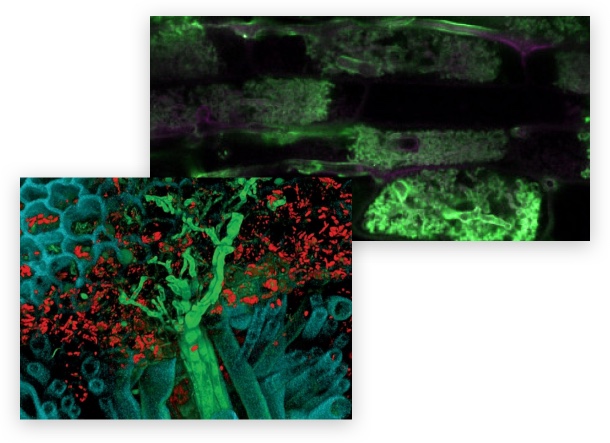
Experts in this area
Doris Albinsky
Barley genetics & phenotyping manager
Crop Science Centre
Profile
Edwin Jarratt Barnham
PhD student
Crop Science Centre
Profile
Margit Drapal
Research Assistent
Royal Holloway University of London
Profile
Sandra Senyo Fometu
Postdoctoral researcher
Pennsylvania State University
Profile
Tessa Grainger
Research Laboratory Technician
Crop Science Centre
Profile
Thomas Irving
Research associate
Crop Science Centre
Profile
Joshua Kaste
Postdoctoral Research Associate
University of Illinois
Profile
Anh Ngo
Postdoctoral Research Associate
Crop Science Centre
Profile
Martina Orvosova
PhD student
Crop Science Centre
Profile
Uta Paszkowski
Professor
Cambridge University, Crop Science Centre
Profile
Ruairidh Sawers
Assistant Professor
Penn State University
Profile
Emily Servanté
Postdoctoral researcher
Crop Science Centre
Profile
Eirini Vlachaki
Research support
Crop Science Centre
Profile
Dr Emma Wallington
Crop Transformation Programme Leader
NIAB
Profile
Nodulation
Nodules harbour rhizobia bacterial infection and create the conditions needed for some plants to fix their own nitrogen. Previous research indicates that the inability of some species of plants to form nodules is due to the loss of a small set of genes. One of the most important gene of this set is NODULE INCEPTION; it connects symbiosis signals at the surface of the plant root to the root core, as well as coordinating nodule creation and regulating the functions needed for the establishment of nitrogen-fixation.
Plant species that have lost these genes should be amenable for repair of nitrogen-fixation. This would be a valuable stepping-stone for engineering nitrogen-fixation across all angiosperms, including legumes, cereals and other crops.
Currently the likelihood that a legume plant will form a nodule is closely linked to the amount of nitrogen in the soil. When there are high levels of nitrogen nodule formation is supressed. Importantly, ENSA research may also result in legume crops that no longer show suppression of nodulation due to the presence of nitrogen. Such legume crops could then be augmented with added nitrogen without losing biological nitrogen fixation. This would make legumes more effective at enhancing soil nitrogen fertility, by maximising biological nitrogen fixation, independent of the levels of nitrogen already present.
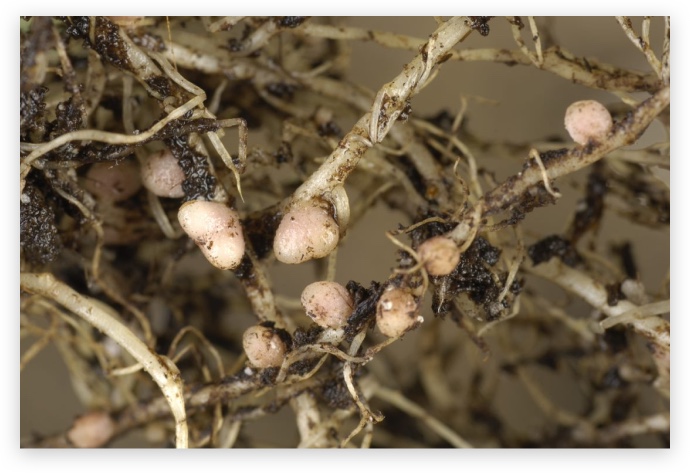
Experts in this area
Nikolaj Abel
Postdoctoral researcher
Aarhus University
Profile
Ronan Broad
Postdoctoral researcher
La Trobe University
Profile
Harm Dings
PhD student
Wageningen University
Profile
Federico Fornaguera
Tissue Culture Technician
Wageningen University & Research
Profile
Manuel Frank
Postdoctoral researcher
Aarhus University
Profile
Rene Geurts
Associate Professor
Wageningen University
Profile
Euan James
Research Leader
The James Hutton Institute
Profile
Min-Yao Jhu
Postdoctoral researcher
Crop Science Centre
Profile
Anindya Kundu
Postdoctoral researcher
NIAB
Profile
Jie-shun Lin
Assistant professor
Aarhus University
Profile
Jieyu Liu
Postdoctoral researcher
Wageningen University
Profile
Thi Bich Luu
Postdoctoral researcher
Aarhus University
Profile
Thiago Alexandre Mores
Early career scientist
Crop Science Centre
Profile
Dugald Reid
Lecturer
La Trobe University
Profile
Jens Stougaard
Professor, Project leader
Aarhus University
Profile
Titis Wardhani
Postdoctoral researcher
Wageningen University
Profile
Siqi Yan
Post-doctural researcher
Wageningen University & Research
Profile
Ji Zhou
Head of Data Sciences Department
NIAB
Profile
